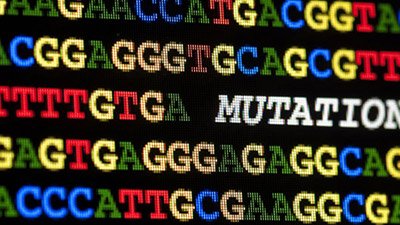
Fruit Flies and Advantageous Mutations
A study of 600 generations of fruit flies, just reported in Nature, sought to unravel the mystery of how advantageous mutations could become fixed in the population.
News Source
Note that even when an “advantageous mutation” becomes fixed in a population, the mutation is not producing new genetic information and, more importantly, the mutation—no matter how fixed—is not producing a new creature or a transitional creature, just a fruit fly better adapted for its environment at the time.
Nevertheless, this study, finding that the advantageous mutation—specifically, the tendency to hatch earlier—didn’t really “take,” concluded that “unconditionally advantageous alleles rarely arise, are associated with small net fitness gains or cannot fix because selection coefficients change over time.” In other words, it is very difficult for even a helpful mutation, which is rare, to take hold in a population because, by the time the advantage in the environment is felt, the conditions change to make the helpful mutation, which was a loss of information anyway, not so helpful anymore.
Specifically, the study affirmed the notion that changes in a population’s traits may arise from the fact that “many genes influence a trait” as each of these versions gradually “become just a little more common.” This process is termed soft sweep, in contrast to hard sweep that would require the sudden appearance of a trait through the novel mutation of single gene.
In an effort to apply this information to human evolution, the NYTimes article quotes a University of Chicago geneticist as saying that soft sweeps would affect human evolution by working “on the genetic variation already present in a population, without having to wait for a novel mutation to arise.” In reality, however, this process is not evolution at all as no new creature or transitional creature is produced—just another group of humans.
Thus, when the article touts this study for increasing our understanding of “how evolution works at the genomic level,” it errs, because the study doesn’t show the evolution of anything new, just the natural selection of a fruit fly that hatches earlier than its relatives.
Further Reading
For More Information: Get Answers
Remember, if you see a news story that might merit some attention, let us know about it! (Note: if the story originates from the Associated Press, FOX News, MSNBC, the New York Times, or another major national media outlet, we will most likely have already heard about it.) And thanks to all of our readers who have submitted great news tips to us. If you didn’t catch all the latest News to Know, why not take a look to see what you’ve missed?
(Please note that links will take you directly to the source. Answers in Genesis is not responsible for content on the websites to which we refer. For more information, please see our Privacy Policy.)
Recommended Resources

Answers in Genesis is an apologetics ministry, dedicated to helping Christians defend their faith and proclaim the good news of Jesus Christ.
- Customer Service 800.778.3390
- Available Monday–Friday | 9 AM–5 PM ET
- © 2026 Answers in Genesis




